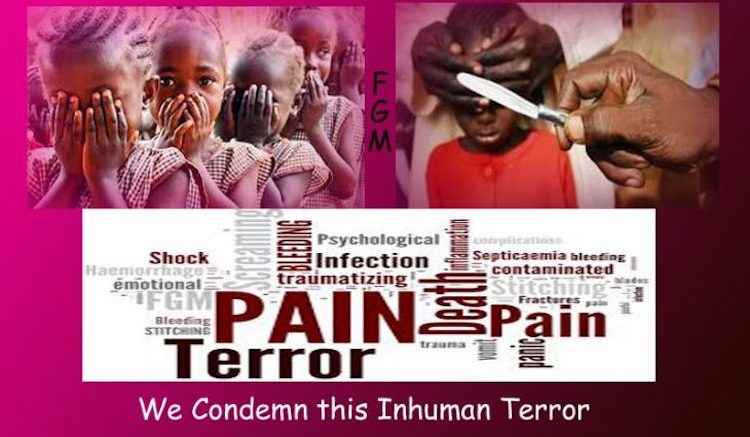
By Caroline Mwanga
NEW YORK (IDN) – While significant progress in eliminating the practice has been made in the last 30 years, approximately 200 million girls and women alive today have had their genitals mutilated. This can lead to long-term physical, psychological and social consequences, warns a joint statement by UN Women, UNFPA, UNICEF and WHO.
The good news is that support for the practice is dwindling, said UN Women Executive Director Phumzile Mlambo-Ngcuka, UNFPA Executive Director Dr. Natalia Kanem, UNICEF Executive Director Henrietta Fore and WHO Director-General Dr. Tedros Adhanom Ghebreyesus on the occasion of International Day of Zero Tolerance for Female Genital Mutilation.
Adolescent girls aged 15 to 19 in countries where female genital mutilation is prevalent are less supportive of continuing the practice than are women aged 45 to 49, said the joint statement on February 6. Besides, in many countries, young girls are at much lower risk of being subjected to female genital mutilation than their mothers and grandmothers were.
“However, rapid youth population growth in countries where female genital mutilation is prevalent could lead to a significant rise in the number of girls at risk by 2030,” warned the joint statement.
The heads of four organizations – UN Women, UNFPA, UNICEF and WHO – point out that when Tabitha was growing up in rural Kenya, most of her 16-year-old peers were subjected to female genital mutilation, a human rights violation that more than 4 million girls worldwide are at risk of this year.
Yet Tabitha remains unharmed, thanks to the unwavering support of her parents, who, in spite of enormous social pressure, saved their daughter from the same fate.
The statement said: “On the International Day of Zero Tolerance for Female Genital Mutilation, we join with Tabitha and young people around the world who are standing up for their rights with urgency and energy.
“They are engaging their peers, families, communities and governments with a call to end this harmful act of gender-based violence once and for all, as promised by the international community in the 2030 Agenda for Sustainable Development.”
Today’s young people can play a critical role in ending the practice, adds the joint statement. Unleashing the power of youth means investing in youth-led movements to champion gender equality,an end to violence against women and girls and the elimination of harmful practices.
This requires including young people as partners when designing and implementing national action plans, building relationships with youth-led organizations and networks that work to end female genital mutilationand recognize it as a form of violence against women and girls, empowering young people to lead community campaigns that challenge social norms and myths, and engaging men and boys as allies.
But, adds the statement, this is not a goal young people can achieve alone, nor can it be addressed in isolation from other forms of violence against women and girls or from gender inequality. It also requires strong political leadership and commitment.
In 2019, at the Nairobi Summit on ICPD25, governments, civil society, faith-based organizations and private companies recommitted to ending gender-based violence and harmful practices — such as female genital mutilation — in 10 years, the same timeframe for achieving the Sustainable Development Goals.
In March, the international community marks 25 years since the Beijing Platform for Action, a global commitment to advance women’s rights across 12 critical areas, including the elimination of all harmful practices against girls and women. “This year, we will announce the creation of a new Generation Equality to drive further investment and results for gender equality.”
The joint statement concludes: “Now is the time to invest, translating the political commitments already made into concrete action. Now is the time to do more and do it better and faster to end the practice once and for all. Now is the time to keep our promise to Tabitha and all girls of reaching zero female genital mutilation by 2030.” [IDN-InDepthNews – 08 February 2020]
Image credit: Arrupe Tribal Cultural Center
IDN is flagship agency of the International Press Syndicate.
facebook.com/IDN.GoingDeeper – twitter.com/InDepthNews











